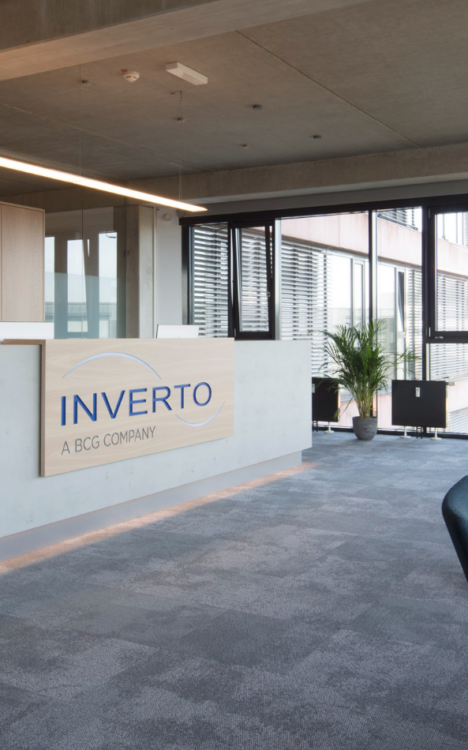9 in 10 businesses now have a corporate sustainability strategy
- But 39% of businesses have not adopted a procurement sustainability strategy
- Only half of companies consider carbon footprint as a factor when selecting their suppliers
- INVERTO’s Sustainable Procurement Study 2022 surveyed 90 procurement professionals and decision makers
LONDON, December 19th – 93% of businesses now have a corporate sustainability strategy in place or underway, shows research by INVERTO, the Boston Consulting Group subsidiary specializing in procurement and supply chain management.
Inverto’s “Sustainable Procurement Study 2022” found that 60% of businesses already have a corporate sustainability strategy in place and 33% are in the process of implementing one.
However, the Study revealed that 39% of businesses do not yet have a procurement sustainability strategy in place, or in progress. Considering the level of emissions that a company’s supply chain is responsible for, this lack of focus on a sustainable procurement strategy could put their sustainability targets at risk.
The lack of a sustainable procurement strategy could also put them at risk of breach of strict new laws coming into force over the next two years that will force businesses to take more responsibility for their supply chain.
Next year, Germany will become the first country to punish companies for failing to identify risks of environmental destruction or human rights violations in their supply chains. Under the Corporate Due Diligence in Supply Chains Act, businesses can be fined up to 2% of their revenues.
The EU’s Corporate Sustainability Due Diligence Directive, set to come into force in 2024, obliges large companies to identify environmental impacts and prevent or mitigate these in their own internal operations and supply chains. Failure to comply could result in directors being found guilty of a breach of fiduciary duty and/or companies being subject to civil liability claims, allowing victims to sue for damages. More countries are expected to make businesses legally responsible for their supply chain sustainability in the coming years to fulfill national ‘Net Zero’ carbon targets.
According to INVERTO, only half of companies consider carbon footprint as a factor at present when selecting their suppliers. The study also revealed that nearly half of companies (44%) have not set a decarbonization target at all, nor measure energy consumption (45%). This would leave many businesses lagging behind both legislative developments and the expectations of their shareholders and stakeholders.
Thibault Lecat, Managing Director of Inverto in the UK says, “Procurement can account for as much as 80% of a company’s CO2 emissions that businesses plan to cut but many businesses have not yet adopted a procurement sustainability strategy.”
“Businesses that fail to adopt a procurement sustainability strategy are taking a big risk and may find themselves wrongfooted by regulation as well as under pressure from their more ESG-focused shareholders.”
“It is reassuring though that only a small and shrinking minority of businesses are ignoring the need to implement a corporate sustainability strategy. However, businesses that have been slow to react will want to start planning procurement sustainability strategies.”
Only half of companies believe that their procurement targets and strategy are aligned with their sustainability strategy. To improve this, INVERTO says that companies should upgrade their sustainability training and provide stronger employee incentives for reaching sustainability goals. Only half judge their sustainability training for procurement teams as very good or good; 41% rate their employee sustainability incentives as in need of improvement.
Other notable findings from the Study include:
- One-fifth of companies have a ‘Net Zero’ decarbonization target, 19% of companies are aiming for a 20% reduction in their emissions and 17% of companies are aiming for a reduction in emissions of at least 40%.
- 72% of companies do not work with the majority of their Tier 2 suppliers on sustainability issues; 79% do not work with the majority of their Tier 3 suppliers.
- Businesses rely on simple sustainability approaches, such as supplier codes of conduct (75%), rather than other more effective solutions such as emissions targets (64%) or sustainable supplier selection measures (63%).
- Securing supply and managing supply-related risks was the most relevant focus topic for procurement (82%), ahead of ensuring sustainable and socially responsible value creation (62%).
INVERTO’s Sustainability Procurement Study 2022 surveyed 90 procurement professionals and decision makers based across Europe and the U.S. from a range of different industries. In total, 39% of the participants are employed by companies with a turnover exceeding €2bn.


